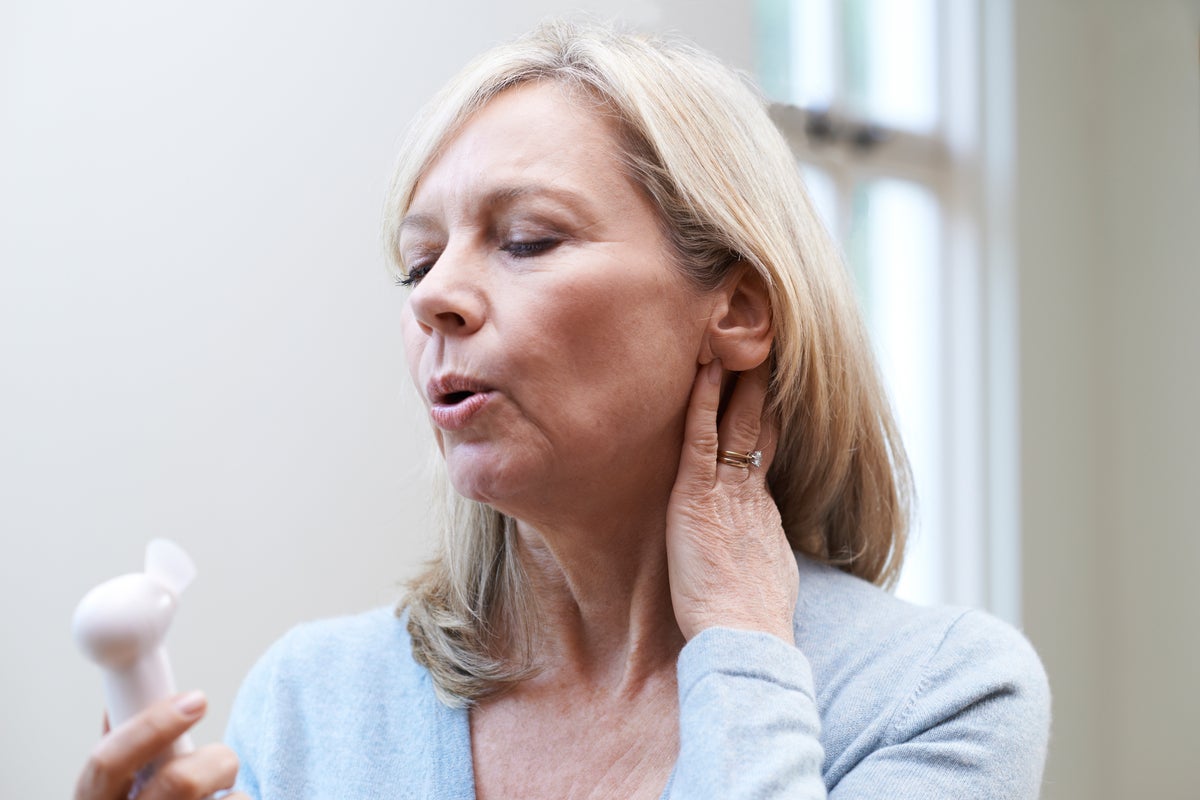When we first set out to explore autistic experiences of pregnancy, another topic kept surfacing in the personal accounts we recieved: menopause. Again and again, autistic people described how difficult this life stage had been and how little support they had received.
So we expanded our focus and our new review reveals a stark reality. Autistic people may face more severe menopause symptoms, struggle to access to care and are routinely dismissed by healthcare professionals.
Menopause technically only lasts one day, which marks 12 months since the person had their final menstrual period. But the menopause transition – including the years of perimenopause before and post-menopause after – is often a much longer and more disruptive phase of life.
Menopause typically occurs between the ages of 45 and 55, but it can happen earlier.
During the menopause transition, a range of symptoms are common. This includes changes affecting the urogenital system such as physical changes to the shape of genitals, vaginal dryness, urinary incontinence and pain during sex.
Other symptoms include hot flushes, night sweats, depression and changes to mood, memory and concentration. Some people have mild menopause symptoms, but for others they can be severe and extremely disruptive.
Our review
We pooled all of the research on autistic menopause which included evidence from eight studies. This small number of studies in itself demonstrates how much more research is needed to better understand autistic experiences of menopause. We also included evidence from publicly available blogs about autism and the menopause.
In our review, we found that most autistic people didn’t know what was happening to them when symptoms began. They hadn’t had access to information that spoke to their needs or experiences. Often, they couldn’t find any at all.
Many turned to online forums and peer support groups. These could be helpful, but they said they would have preferred information from a more trusted source, like a doctor or nurse.
We found that while the symptoms autistic people reported were similar to the general population, they sometimes experienced them more intensely.
Sensory sensitivities seemed to increase for some. This in turn sometimes led to more frequent and extreme meltdowns, which are moments of overwhelming distress where people might scream, cry, pace or physically remove themselves from a situation.
Fatigue was also a major issue. While it’s common for all menopausal people to be more fatigued, some autistic people found this change difficult to navigate. This became particularly challenging for those who mask their autism – that is, who consciously hide or manage their autistic traits to avoid negative reactions from others.
Many said that during menopause, masking became harder or even impossible. They felt more exhausted and more socially awkward than before.
Many described changing their day-to-day routines to reduce fatigue, including doing less to allow more time to rest. When this didn’t sufficiently control their symptoms, some decided to seek medical help. Those who didn’t try to get help often reported previous negative interactions with healthcare, so didn’t trust that they would get support.
Few people mentioned hormone replacement therapy (HRT), even though it’s the gold standard for managing menopause symptoms.
Overall, we found autistic people received little support for menopause from the healthcare system. Almost all autistic people reported negative experiences.
That shouldn’t be acceptable, especially when we know that autistic people face worse health outcomes on almost every measure, including an increased risk of early death and higher rates of suicide.
Autism diagnoses in people who were assigned female at birth often happens later in life. This has been linked to increased masking. For many, diagnosis leads to periods of reflection on difficulties earlier in life.
That matters because this self reflection and changing identity can be life-changing, but only if professionals recognise the signs and support people to access both diagnostic and menopause-related care.
What needs to change
A rethink is needed on how to better support autistic people through menopause. Healthcare professionals need better training. Autism-specific information and resources must be co-designed with autistic people.
Peer support should be properly evaluated too. In our review, some people said they had found informal support groups incredibly helpful. But they were also unsure whether the information being shared was accurate.
Peer support has been used in the NHS, including for breastfeeding. But peer support services don’t always get enough funding and support from health professionals, and services aren’t always designed in a way that means they can provide support that makes a difference.
Peer support shouldn’t be a cheap or tokenistic solution. For it to work, it needs proper investment.
There’s still so much we don’t know about how autistic people experience menopause and it remains an under-researched area. What we do know is that menopause has significant effects on health and wellbeing. The fact that menopause symptom severity may be higher for autistic people means that providing adequate support is essential.
Aimee Grant is a Senior Lecturer in Public Health and Wellcome Trust Career Development Fellow at Swansea University, Wales. Harriet Axbey is a Research Assistant in Public Health at Swansea University, Wales. Rebecca Ellis is an Assistant Researcher in Public Health, at Swansea University, Wales. This article is republished from The Conversation under a Creative Commons license. Read the original article.

